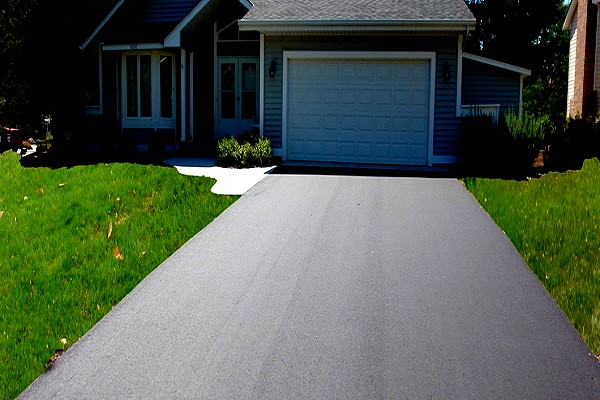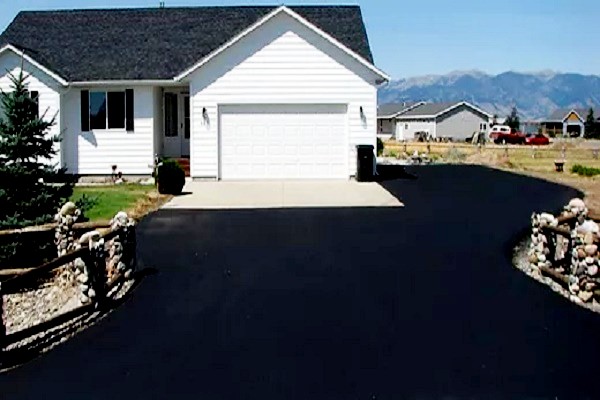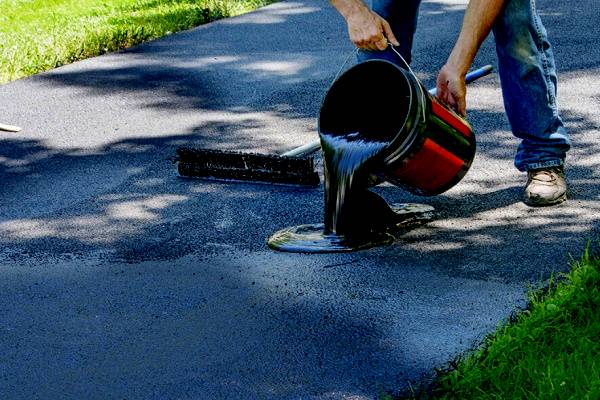If you are considering installing a new driveway for your home and office, think asphalt grinding is the solution. Asphalt millings are also the perfect choice if you need something economical and durable to cover the exterior areas around your home.
Due to the use of gravel for different purposes, many homeowners and office owners seem to ignore the fact that there are substitutes that can effectively complete any construction work other than that.
Asphalt millings can effectively replace gravel, and even offer some benefits that traditional gravel lacks.
Why should you consider grinding asphalt over traditional gravel? We have four easy reasons why you should consider this versatile material.
Recycled asphalt can be used in a variety of different uses – whether you normally use gravel or hot asphalt. Looking for eco-friendly and cost-effective materials for your home? Asphalt grinding may be what you are looking for!
What are Asphalt Millings?
First, let’s take a closer look at what asphalt really is, so you can understand the difference between new and used asphalt.
Asphalt itself is black, sticky, and sticky in liquid form. It is made from petroleum, which can be found naturally and can also be refined in factories. Asphalt is one type of field. Because it’s natural black, we get the term “dark black” from asphalt.
You are probably most familiar with asphalt used in highways and driveways. It has been used as a paving material for a long time. Of course, straight asphalt is sticky and wet, but when mixed with granular particles, the result is asphalt concrete.
Asphalt concrete is perfect for walking, although it can present one problem: asphalt will melt in very hot temperatures. That’s why there’s often news about roads melting on very hot days.
Front of Modern Asphalt House
You can choose to pave your driveway or other areas around your home with asphalt or recycled asphalt. However, throughout history, there are also many modern uses for asphalt in addition to paving.
Roofing is the second most common use of the material. Other uses include sealing the exterior of buildings and other structures, lining ponds and reservoirs, coating cables and pipes, and even making newspaper ink.
However, asphalt concrete for paving is by far the most common form of asphalt today. This concrete mix is usually about 10 percent asphalt, mixed with 100 percent gravel, sand, or stone to make a durable paving material.
Read Also: How Much to Ideas and Designs for Driveway
Asphalt cement is heated to its melting point so that it can be completely mixed with the aggregate material.
Asphalt pavement must be maintained. Milling, or removing part of the surface to smooth it out, is a common form of asphalt pavement treatment.
After milling, the removed coating can be brought back to the asphalt mixing facility and recycled. Since so many roads today are paved with asphalt, it makes sense to recycle some of this material.
From airport runways to highways to homes, asphalt is all around us and is often reused after it has been dismantled. Is recycled asphalt the best choice for you? Let’s take a closer look.
Recycled asphalt
There is no doubt that asphalt as a pavement material is not very energy efficient. Making and using them usually leaves a negative environmental footprint. If you like buildings that are sustainable and environmentally friendly, you’ll want an alternative.
However, asphalt is also one of the most affordable and durable materials not only for roads but also for driveways and backyards. How do you get around it? The answer may lie in recycling. Like all recyclable materials, the process turns them into sustainable materials.
Modern Recycled Asphalt Type
Let’s examine the various ways modern asphalt can be made closer together.
1. Granular Aggregate
Old asphalt can also be recycled to make new granular aggregates for asphalt mixtures. In this process, the used asphalt is crushed and filtered, then mixed with a new or recycled aggregate material.
2. Asphalt Cement Supplement
When recycled asphalt is used as a cement supplement, it provides an additional binder to the asphalt cement. This means there is less need for new asphalt cement in either new or recycled mixes.
3. Hot mix method
When recycled asphalt is produced using the hot mix method, it is usually done in a processing facility. The facility will have crushers, screening equipment, and stacking and hauling equipment.
This allows the asphalt to be recycled and stocked for reuse. The end result can be used on hot mix asphalt pavements as a substitute for new asphalt.
If the aggregate does not adhere to the new asphalt mixture, it must be combined with other materials to increase strength. Therefore, granular aggregates made from recycled asphalt must be mixed with other materials before they can be used.
4. Subbase Aggregate
Used asphalt can also be crushed, filtered, and made into a stable basic aggregate. Again, it needs to be mixed with other ingredients before it is strong enough to use.
5. Hot Mix Asphalt
Hot mix asphalt can also be made on site. This operation will use heating, compaction, and other processes that can be carried out on-site to recycle used asphalt.
6. Cold Mix Asphalt
Recycling cold mix asphalt in a facility is very similar to recycling hot mix asphalt. The main difference is that this asphalt will be used on cold mix pavements, not hot mix pavements.
7. Cold mix recycled asphalt
When cold mix recycled asphalt is produced on-site, the pavement is milled to the desired depth for back coating, then processed and mixed on-site. Paved and compacted roads without asphalt are transported to the facility.
When recycled asphalt is used as a fill material, it is usually because there is asphalt leftover from another project, and it must be disposed of responsibly.
What is Crushed Asphalt?
Crushed asphalt is also called pavement milling, asphalt grinding, and recycled asphalt pavement. It is basically made of scrap asphalt or project roads that have been crushed into gravel.
Once these are crushed and sifted properly, the end result is high-grade aggregate coated with asphalt cement. Not only very durable but also cost-effective.
So if you are a homeowner on a budget looking for great driveway material, crushed asphalt may be your best bet.
If you’re a homeowner thinking about installing demolished asphalt for your driveway, here are a few things you need to know about it.
Inexpensive
Crushed asphalt is quite affordable as it requires fewer resources including materials, production, and labor compared to other driveway materials.
seepage
The crushed asphalt composition allows it to withstand rain and snow, which simultaneously reduces the risk of flooding in your driveway.
Excellent bonding quality
Crushed asphalt is basically recycled asphalt mixed with some tar. Basically, this means when your driveway gets wet it will produce a compact quality that helps reduce dust and dirt in the area.
Interested
Crushed asphalt has a unique yet attractive appearance that is a cross between an actual asphalt surface and the charming texture of gravel, which appeals to most homeowners.
Asphalt millings driveway pros and cons
Ever wonder where the big chunks of asphalt go after the construction crew digs up the old asphalt layer to replace it with the new one?
Large chunks of asphalt from the old asphalt driveway are not disposed of in a different landfill. Instead, they are taken to recycling plants for reuse.
Recycled asphalt may seem an ideal choice when installing a new driveway for your home. In fact, becoming a trend. However, before you make the same decision, here are some things you need to consider in order to make an educated choice:
This helpful guide will help you choose the best driveway for your home and will provide the pros and cons for the two most common driveway surfaces.
Gravel Entrance
Gravel is a common surface material for driveways throughout the United States. The crushed stone used in many applications is easy to care for and is available in a variety of colors.
Pro:
Easy on your budget. Gravel is one of the most affordable surface material options available – especially for homes with long driveways. However, top dressing of gravel material will be required every few years.
Easy to maintain.
Various styles
Depending on the style of your home, gravel can often accentuate the beauty of your exterior landscape more than any other material. Whether you like a rustic or more modern feel, pebbles come in a variety of options.
Quick installation
As one of the easiest driveway materials to install, laying the gravel and letting it settle will take less than a week. Once installed, it can be used immediately
cons:
The removal of climate and snow disturbs the rocks. One of the main disadvantages of choosing a gravel road surface is the challenges faced with snow and ice removal.
It can get dirty. Driving on gravel driveways can cause dust, debris, and debris to fly – especially in the dry summer months. This can cause the exterior of your home to become dirty and require frequent cleaning.
Pavement
Like gravel, asphalt is an economical choice of road surface, although prices can fluctuate as the material is an oil-based product.
A properly installed asphalt walkway will function similarly to a concrete surface, but at a lower cost. The following pros & cons will help you determine if asphalt is the right choice for you:
Pro:
Economical choice
Homeowners value the smooth appearance of paved roads at a lower cost than concrete or paver surfaces.
Flexible in extreme climatic conditions
Asphalt driveways typically cost $3 – $66 per square foot to install – more than gravel, but far less than many other options.
Long live
With proper care, asphalt roads will last between 10-15 years depending on installation, climate, usage, and other factors. Like most elements of your home, the better you care for it, the longer it will last.
cons:
Style Limit
If style and color are the main considerations for your exterior landscape, paved roads will present certain limitations. Although it complements the color and tone of most homes, black is the only option available for asphalt applications.
Care requiredIt is recommended that homeowners clean their driveways with a broom and electric washer at least twice a year to remove dirt and grime. Pavement cover is required every two to five years and cracks and holes should be repaired as soon as possible.
Can be damaged during extreme heat
Homes located in warm climates may be susceptible to driveway damage caused by temperature fluctuations, especially extreme heat.
When asphalt heats up, it can become pliable and soft causing indentations and marks.
The gravel driveway provides a very affordable surface option while the paved driveway provides a strong flat surface that is easy to shovel in winter and convenient for parking all year round.
Crushed asphalt driveway
If cost is a major factor for you, then demolished concrete pavement is a better choice. However, the crushed asphalt definitely wins the visual appeal factor. Moreover, it is probably the most durable material that will best suit your driveway
Asphalt mills actually harden and form a stronger bond over time and they produce less dust and dirt than gravel.
Less dust means vehicle owners who frequently use roads or land do not need to clean their trucks and cars often if they only use gravel.




